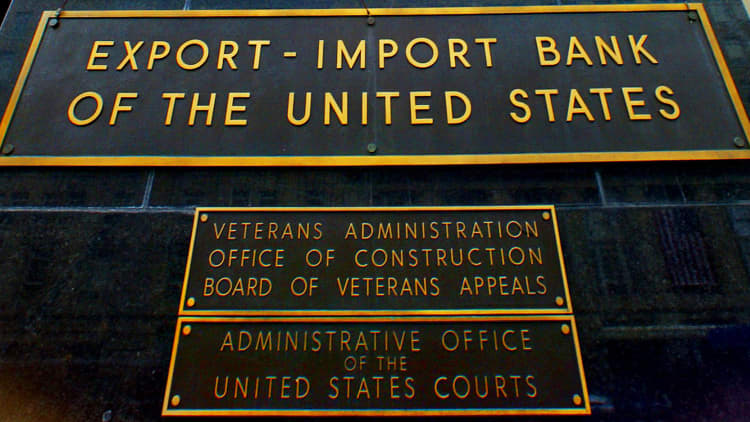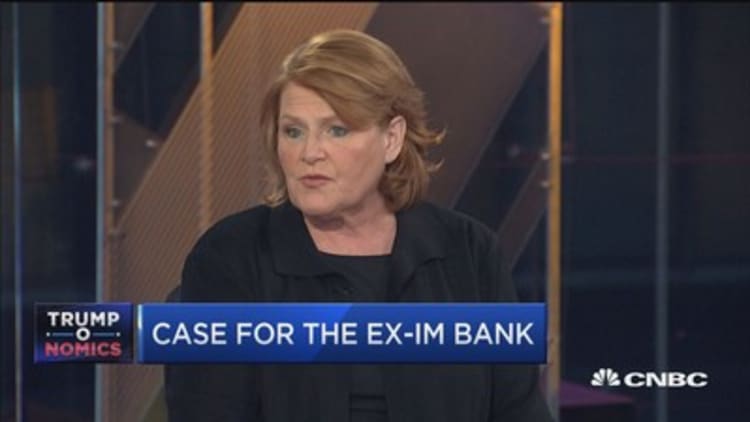
President Donald Trump extended an olive branch to Democrats when he pledged to support the controversial Export-Import Bank last week. But now, his nominees to lead the bank are angering both sides of the aisle.
Trump has named two former Republican congressmen to fill the empty seats on the bank's five-member board. One is a more traditional pick: Spencer Bachus is a moderate from Alabama who served as chairman of the influential House Financial Services committee during the Great Recession. But Trump selected former New Jersey Rep. Scott Garrett for the other seat. A founding member of the Freedom Caucus, Garrett has criticized the Ex-Im Bank as a symbol of Washington's "crony capitalism."
"It turns the economy into a biased actor that uses your taxpayer dollars to tilt the scales in favor of its friends," he said in a speech on the House floor in October 2015.
Democratic Sen. Heidi Heitkamp of North Dakota, one of the bank's most vocal supporters, was measured in her praise of Trump's decision. While she called filling the board a "positive step," she said she still has "reservations" about the nominees. Minority Whip Rep. Steny Hoyer (D.-Md.) was more direct.
"Once again, President Trump has selected a nominee to lead an agency that

The Ex-Im Bank provides financing for U.S. exporters through insurance and loan guarantees and
"Without Ex-Im, you're putting U.S. exporters at a competitive
Though 90 percent of its transactions are with small businesses, the biggest single beneficiary is Boeing. In
Trump: 'It actually makes money'
On the campaign trail, Trump vowed to end the bank. But he publicly changed positions last week after meeting with business executives at the White House, including former Boeing CEO James McNerney.
"Instinctively you would say it's a ridiculous thing but actually it's a very good thing and it actually makes money," Trump told the Wall Street Journal.
At least one conservative signaled he is not backing down on his opposition. Freedom Caucus member Rep. Justin Amash of Michigan tweeted over the weekend that the bank "steals from taxpayers to subsidize big corporations." Amash and Sen. Mike Lee of Utah have previously introduced legislation that would end the bank.
Other key Republicans have expressed skepticism about the bank. Speaker Paul Ryan (R.-Wis.) said in 2014 that he wanted to eliminate the institution. And Alabama Sen. Richard Shelby refused to bring up President Barack Obama's nominee to Ex-Im board when he was chairman of the Senate banking committee.
But House Financial Services Chairman Jeb Hensarling (R.-Texas) appeared open to compromise on Monday. In a statement, he said he was hopeful that the nominees could help "safeguard taxpayer dollars."
"With Ex-Im so captured by special interests, the president was right to choose principled leaders like these to safeguard the agency against further mission creep, fraud,
Trump's picks must also win Senate confirmation. Hearing dates have not yet been set.

